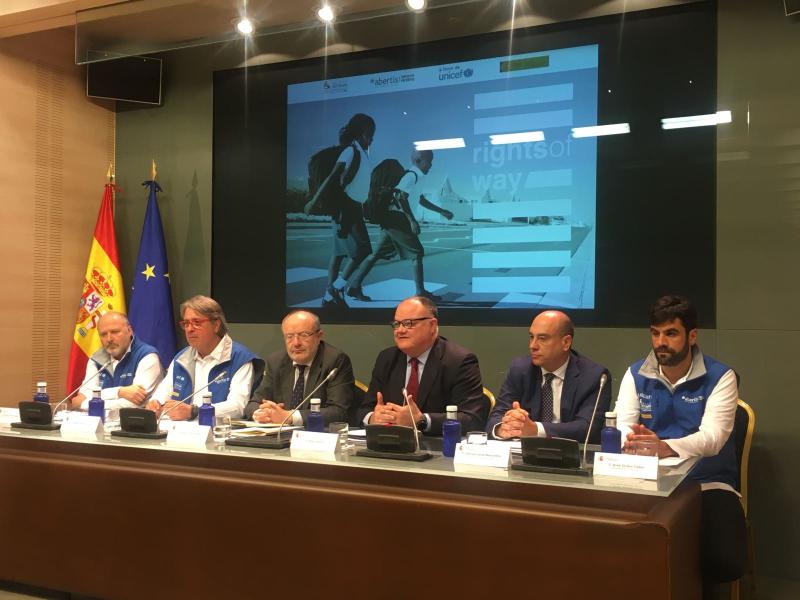Institut Guttmann, Abertis and UNICEF present the project "Rights of Way"
Institut Guttmann, Abertis and UNICEF present the project "Rights of Way"

The project RIGHTS OF WAY, in which UNICEF, Abertis and the Institut Guttmann collaborate, was presented at the Instituto Cervantes of New York, with the presence of Mrs. Maria Bassols, assistant ambassador of Spain before United Nations and the Secretary of the International Cooperation for Iberoamerica and the Carib of the Government of Spain, Mr. Juan Pablo de Laiglesia.
1.25 million people die every year on the roads of the world as a result of traffic accidents. Injuries for this type of accident are the leading cause of death among children and adolescents over 10 years of age worldwide. Nearly 10 million children are injured or disabled in traffic accidents every year around the world. More than 3,000 die every day on the roads according to the Child Health Initiative. For this reason, UNICEF and Abertis announced a new collaboration agreement to combat the main cause of mortality in school-age children: road accidents. T
The goal is to strengthen and expand UNICEF's work to protect children on the roads of the world and offer a safe path to school. The Institut Guttmann collaborates in this project to promote best practices in the prevention of damage caused by traffic accidents in children. Two medical teams at the Institut Guttmann specialized in the treatment of lesions of neurological origin (spinal cord injury and acquired brain damage) will travel to carry out training sessions and advice to local doctors of different countries about the best applied practices for the prevention and treatment of injuries derived from traffic accidents.
In the first phase, teams will visit hospitals in the Philippines and Jamaica, countries that have a public health problem in children's road accident. In the future, it is planned to extend the number of countries benefiting from this agreement. The selection of the medical centers chosen for the training sessions will be carried out taking into account local needs and in accordance with the advice of local bodies focused on the area of care for victims.



